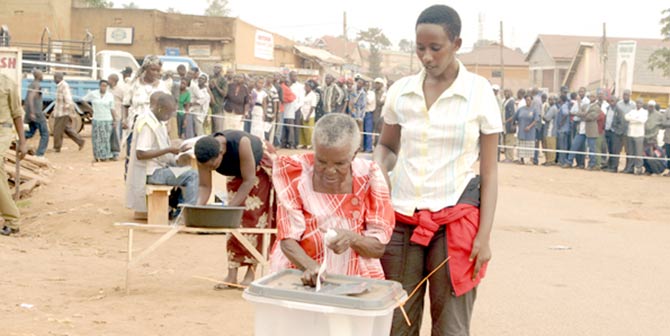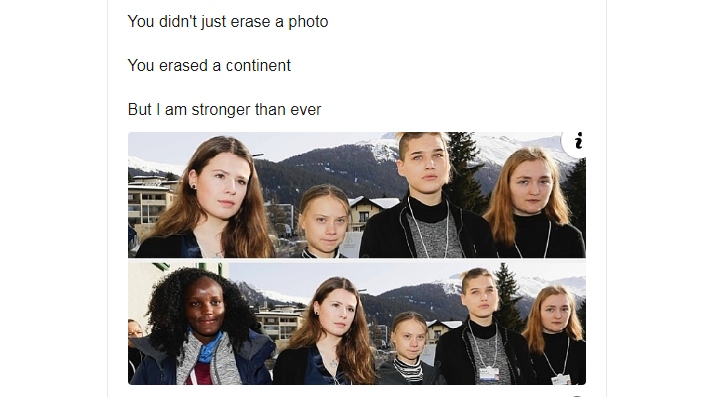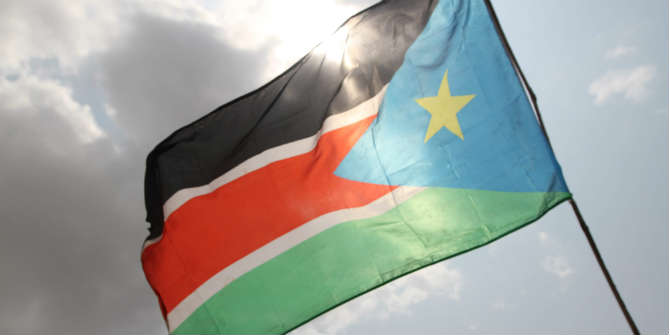Randi Solhjell is a research student in the Government Department at LSE. Here, she outlines the challenges ahead for the leaders of Central Africa’s largest country as the presidential elections approach.
On 28 November, the Congolese people are expected to vote in the general election. The only previous democratic election in 2006 was made possible largely by the political, logistical, financial and military support of the United Nations and the European Union.

However, this time it is headed by the Kinshasa government itself. Many sceptics are wondering if the DRC will follow through with its anticipated election as polling stations, transportation and qualified personnel are lacking in many places.
As one report stated, “the Congolese authorities face a dilemma: respect the constitutional deadline and organise botched elections, or ignore that deadline and slide into a situation of unconstitutional power.”[1]
Both options are, of course, seriously threatening the government’s legitimacy. The DRC’s National Independent Electoral Commission (CENI) seems, however, fully dedicated to this date and will only allow a few days’ delay if necessary.
Another cause of concern raised by several observers is the issue of pre and post-election violence.[2]
In 2007, there were major clashes in the capital between the soldiers loyal to the beaten presidential candidate Jean-Pierre Bemba and the national security forces when the former refused to join the latter after the election results were released.
In any event, the efforts of the Congolese police and army to prevent or control disturbances are questioned largely because their function has been to preserve the undemocratic interests of individuals and political parties.
Moreover, the country has currently over 30 political parties and as many as eleven presidential candidates are standing for election.[3]
There is a limited amount of information in the public domain about all these parties and presidential candidates, particularly as there is hardly any independent media in the country apart from UN-supported Radio Okapi.[4]
Some of the presidential candidates have also been criticised for being poor leaders as they have already been accused of gross human rights violations. For example, the previous governor of the Katanga province, Kyungu wa Kumwanza is alleged to have used youth militia between 1993-95.[5]
It is expected that the current president Joseph Kabila will have huge support, partly because he is well known in all the provinces. However, his popularity is shrinking as he has been unable to bring significant change to the nation.
In the east, for instance, President Kabila’s support has shrunk sharply due to the joint military offensive with Rwandan president Paul Kagame as well as a failure to bring peace in the North and South Kivu Provinces.
Furthermore, his position may be challenged by established veterans such as Etienne Tshisekedi who was one of the first to publicly oppose Mobutu Sese Seko’s longstanding dictatorship in the late 1980s and early 1990s.
Finally, the sheer number of candidates makes it less likely that any of them will gain enough votes to claim victory.
Whatever the outcome of the election, it is fair to say that the new government will face enormous challenges in state and peace-building efforts.
[1] The International Crisis Group (2011:i). “Congo: The Electoral Dilemma.” Africa Report N°175, 5 May 2011. Available at http://www.crisisgroup.org/en/regions/africa/central-africa/dr-congo/175-congo-the-electoral-dilemma.aspx
[2] BBC news Africa 28 October 2011 “DR Congo election: Rights groups warn of instability”. Available at http://www.bbc.co.uk/news/world-africa-15493210
[3] For an updated list of candidates see http://radiookapi.net/congo/elections-2/
[4] See also Olivier Bucyanas blog post “The Challenge of Holding Democratic Elections in Africa” posted 7. November 2011 below.
[5] Highlights by Jason Stearn (2010) from leaked UN report at http://www.csmonitor.com/World/Africa/Africa-Monitor/2010/0827/Highlights-from-leaked-UN-draft-report-on-Congo-atrocities-1993-1996






This is a very insightful article, showing the challenges of the DR Congo. I also found this article very interesting, published in the Cambridge-Oxford blog: How are election preparations unfolding in the Democratic Republic of the Congo (DRC)? Hope or failure? Two perspectives.
http://politicsinspires.org/?p=1944